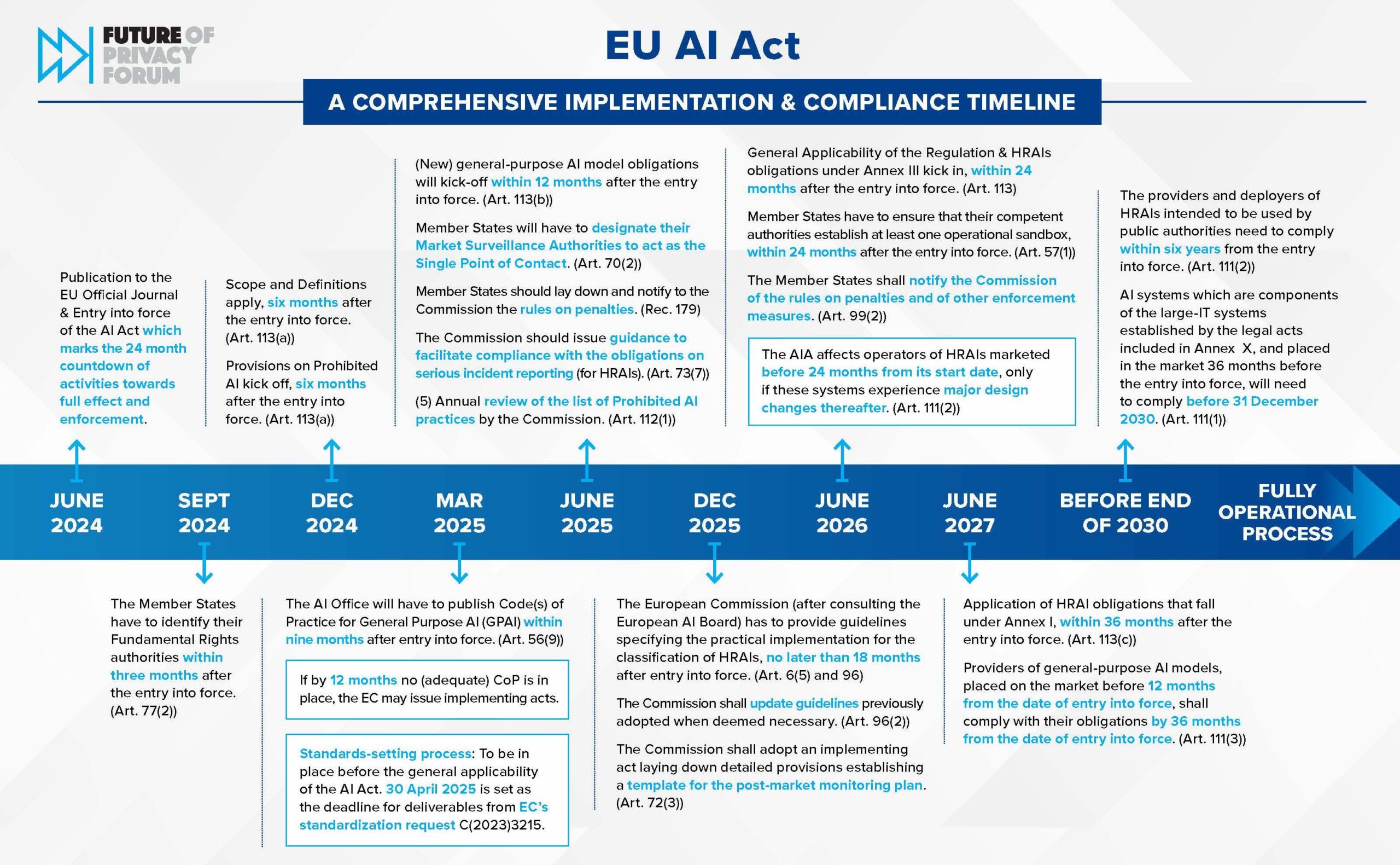
Privacy and the Rise of “Neurorights” in Latin America
Authors: Beth Do, Maria Badillo, Randy Cantz, Jameson Spivack “Neurorights,” a set of proposed rights that specifically protect mental freedom and privacy, have captured the interest of many governments, scholars, and advocates. Nowhere is that more apparent than in Latin America, where several countries are actively seeking to enshrine these rights in law, and some […]

FPF Statement on the adoption of the EU AI Act and New Resource Webpage
“Today the European Union adopted the EU AI Act at the end of a long and intense legislative process. At the Future of Privacy Forum we believe that multistakeholder global approaches and advancing common understanding in the area of AI governance are key to ensuring a future with safe and trustworthy AI, one that protects […]

FPF Resources on the EU AI Act
The EU AI Act is expected to play a crucial role in global development of AI Governance frameworks. We are compiling on this page a continuously updated list of FPF Resources dedicated to the EU AI Act, as well as to its relationship to the EU GDPR and other privacy and data protection law. Last […]

Colorado’s Approval of Global Privacy Control: Implications for Advertisers and Publishers
The privacy laws of both Colorado and California require organizations to recognize Universal Opt-Out Mechanisms (UOOMs), a tool through which a person can invoke their opt out rights broadly across all the websites they visit. While California has required responding to certain UOOMs since July 2021, the Colorado Attorney General has only recently approved their […]

FPF Joins the NIST Artificial Intelligence Safety Consortium
The Future of Privacy Forum (FPF) is collaborating with the National Institute of Standards and Technology (NIST) in the U.S. Artificial Intelligence Safety Institute Consortium to develop science-based and empirically backed guidelines and standards for AI measurement and policy, laying the foundation for AI safety across the world. This initiative will help prepare the U.S. […]

The Garden State Joins the Comprehensive Privacy Grove
On January 16, 2024, Governor Murphy signed S332 into law, making New Jersey the thirteenth U.S. State to adopt a comprehensive privacy law to govern the collection, use, and transfer of personal data. S332 endured a long and circuitous route to enactment, having been introduced in January 2022 and amended six times before being passed […]

7 Essential Tips to Protect Your Privacy in 2024
Today, almost everything we do online involves companies collecting personal information about us. Personal data is collected and used for various reasons – like when you use social media, shop online, redeem digital coupons at the store, or browse the internet. Sometimes, information is collected about you by one company and then shared or sold […]

Explaining the Crosswalk Between Singapore’s AI Verify Testing Framework and The U.S. NIST AI Risk Management Framework
On October 13, 2023, Singapore’s Infocomm Media Development Authority (IMDA) and the U.S.’s National Institute of Standards and Technology (NIST) published a “Crosswalk” of IMDA’s AI Verify testing framework and NIST’s AI Risk Management Framework (AI RMF). Developed under the aegis of the Singapore–U.S. Partnership for Growth and Innovation, the Crosswalk is a mapping document […]

Data Privacy Day 2024
Data Privacy Day (or Data Protection Day in Europe) is held annually on January 28, a day to internationally promote best practices surrounding consumer privacy and data protection. Join the Future of Privacy Forum in recognizing this significant day by sharing the importance of data privacy. There are many ways you can protect your personal […]

Regu(AI)ting Health: Lessons for Navigating the Complex Code of AI and Healthcare Regulations
Authors: Stephanie Wong, Amber Ezzell, & Felicity Slater As an increasing number of organizations utilize artificial intelligence (“AI”) in their patient-facing services, health organizations are seizing the opportunity to take advantage of the new wave of AI-powered tools. Policymakers, from United States (“U.S.”) government agencies to the White House, have taken heed of this trend, […]
